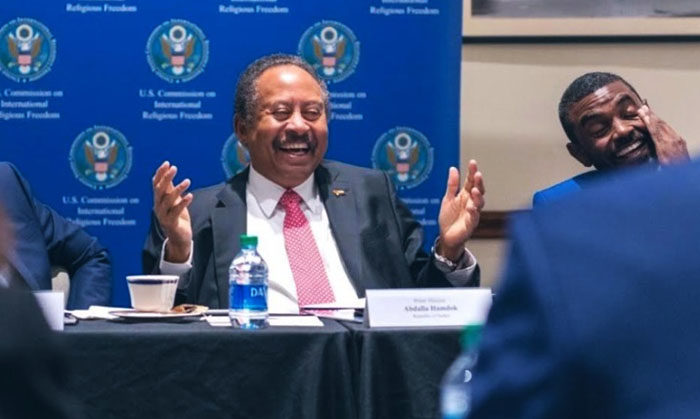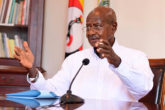
Sudan Prime Minister Abdalla Hamdok meets with commissioners serving with the U.S. Commission on International Religious Freedom in Washington, D.C. on Dec. 5, 2019. | USCIRF
Sudan’s new leadership has terminated committees that were formed under the regime of former President Omar al-Bashir to demolish churches and confiscate their properties in Khartoum.
According to the Christian Post, Sudan’s Minister of Religious Affairs Mr Nasreldin Mofreh signed an order on 11 March, 2020 demanding the dissolution of church councils that international advocates said “legitimized the former government’s confiscation of church properties.”
Uganda Christian News has through various reports revealed how Sudanese Churches and their leaders became a target of the previous Islamist government shortly after the secession of South Sudan in 2011.
Many Christians and persecution watchdogs applauded Nasreldin’s order on social media.
“We are pleased by the Minister’s decree, given the role these illegitimate church councils played in the former regime’s persecution of Christians and the obstacles they continued to present to churches’ ability to represent their own interests to the government,” U.S. Commission on International Religious Freedom, Chairman Tony Perkins, said in a statement.
Advocates are hopeful that the move will lead to the return of church oversight to rightful church leaders, according to the Christian post. This might still require legal action, sources say.
In another move aimed at promoting religious freedom among minority groups, Sudan’s new Minister of Education Mohamed Al-Amin Al-Toam also issued a statement this very month saying that his ministry will consider the appointment of Christian teachers to teach Christianity in public schools, after more than 30 years.
According to USCIRF Commissioner Johnnie Moore, Sudan finalized a constitutional declaration last year that no longer references Islam as the primary source of law in the country.
Bashir had vowed during his stay in office that “Sharia [Islamic law] and Islam will be the main source for the [Sudanese] constitution, Islam the official religion and Arabic the official language,” he said.
In December, the U.S. State Department removed Sudan from its list of “countries of particular concern” for egregious religious freedom violations. Sudan is now on the State Department’s “Special Watch List.”

